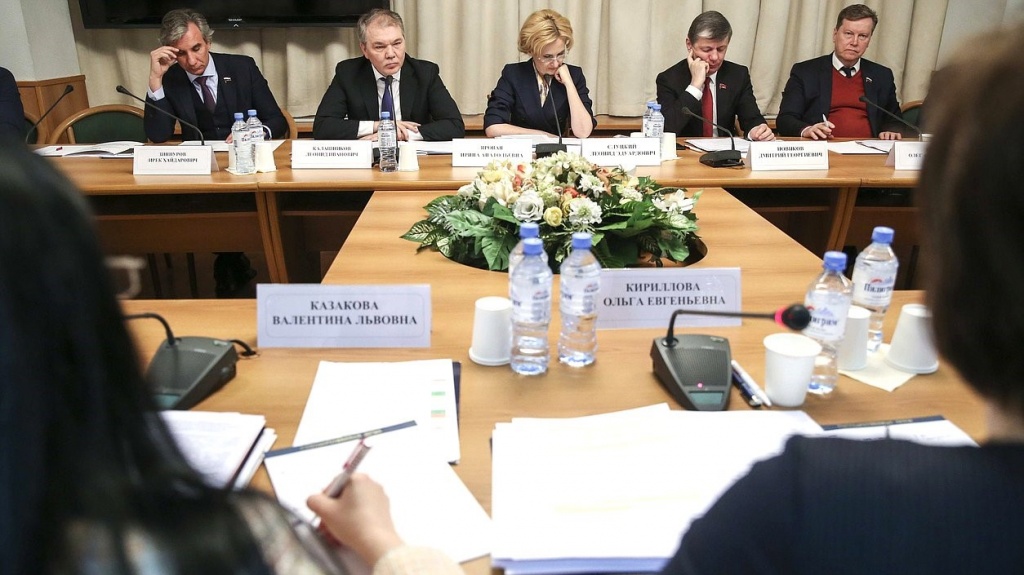I. Appointment of Coordination Coincil of the Heads of the CSTO Competent Bodies on Combating Illegal Migration:
1.1.The Coordination Council of the Heads of the Competent Authorities of the Member States of the Collective Security Treaty Organization to Combat Illegal Migration is a subsidiary body of the Collective Security Treaty Organization (hereinafter - CSTO) established in accordance with Article 13 of the Charter of the Organization.
1.2.The members of Coordination Coincil of the Heads of the CSTO Competent Bodies on Combating Illegal Migrationare the heads of the competent authorities of the CSTO member states or the persons replacing them by their positions.
1.3.The Coordination Coincil of the Heads of the CSTO Competent Bodies on Combating Illegal Migrationin its activities is guided by the generally recognized principles and norms of international law, the CSTO Charter, decisions of the CSTO Collective Security Council, other normative acts regulating the activities of the CSTO, bilateral and multilateral international treaties on cooperation in combating illegal migration, including trafficking in persons, the parties to which are CSTO member states, as well as these Regulations.
II. Tasks and functions of Coordination Coincil of the Heads of the CSTO Competent Bodies on Combating Illegal Migration
2.1. The main tasks of Coordination Coincil of the Heads of the CSTO Competent Bodies on Combating Illegal Migrationare:
- assistance in the preparation and conduct of coordinated (coordinated) preventive operations and special operations to combat illegal migration from third countries to the territory of the CSTO member states;
- ensuring the interaction of the competent authorities in order to improve the effectiveness of countering illegal migration and related offenses;
- the development of proposals for the adoption of joint practical measures to counter illegal migration;
- participation in the preparation and implementation of decisions of the CSTO statutory bodies concerning the improvement of the legal framework, areas of regional cooperation, the exchange of information resources and the training of personnel of the competent authorities of the CSTO member states in the fight against illegal migration;
- exchange of information on citizens of the CSTO member states, which, in accordance with the national legislation of one of the Parties, are not allowed to enter one of the CSTO member states;
- participation in the preparation of proposals on improving the legislative framework of the CSTO member states in the fight against illegal migration;
- participation in the development of interstate programs and plans to counter illegal migration, in the preparation and holding of scientific and practical conferences, seminars, meetings and working meetings, assisting in the exchange of experience in this field;
- participation in methodological and informational and analytical support of the competent authorities.
2.2. KSBNM within the competence carries out the following main functions:
- coordinates the efforts of the competent authorities of the CSTO member states in combating illegal migration from non-CSTO member states;
- considers issues of cooperation in the field of creating national systems of passport and visa documents of a new generation containing electronic data carriers;
- considers relevant issues on the improvement and harmonization of national regulatory legal acts governing the entry, exit, transit and stay of foreign citizens and stateless persons on the territory of the CSTO member states, as well as criminal, criminal procedural, operational-search and administrative legislation in order combating illegal migration;
- participates in the consideration of the simplification of forms and requirements for documents for the entry, stay and departure of citizens of the CSTO member states from their territories;
- promotes the exchange of experience, thematic and methodological information between the competent authorities of the CSTO member states, as well as the competent authorities of other states and international organizations;
- considers joint research on issues of mutual interest for the competent authorities;
- considers issues of training and advanced training of personnel for the competent authorities using the capabilities of the basic educational institutions of the CSTO.

